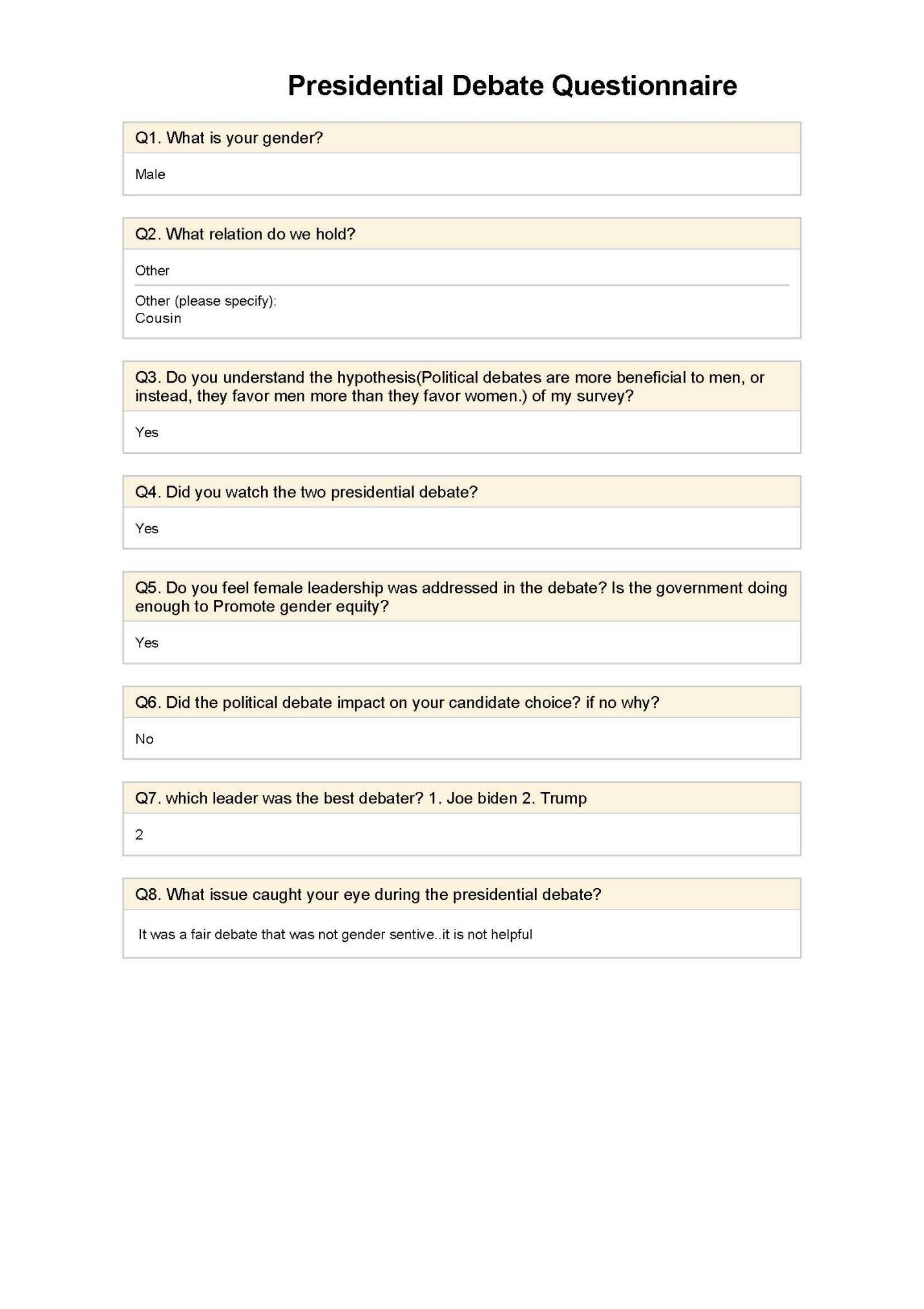Introduction: Overview of Morphosyntactic Features
Morphosyntactic features are features that in a given language are involved in either agreement or government. These features include tense, case, numbers, gender, person, definiteness, mood, and aspect (Rijkhoff, 2016). In this research, I will be looking at the political debates that are carried out during elections. This research aims to analyze the impact of the various morphosyntactic features on political debates. I will also be seeking to know the opinions of various people on this topic.
This research aims to show how these features are brought out in the hypothesis. This research aims to see whether the hypothesis will turn into a theory at the end of the research depending on the outcome of my survey. National policies regarding; Taxation, criminal justice, relationship with other countries, response to the ongoing COVID-19 pandemic, and the government structure shall be highlighted. Everyone needs to listen to these debates before they go to vote in the secret ballot boxes. The information highlighted will be an essential guide and the kind of leader they are electing.
Hypothesis
Political debates are more beneficial to men, or instead, they favor men more than they favor women.
Background
Fujiwara, T., Müller, K., & Schwarz, C. (2020). The Effect of Social Media on Elections: Evidence from the United States. SSRN Electronic Journal.
According to this author, social media plays a vital role in identifying various mistakes and weaknesses in candidates. After the elections, people will highlight all the candidates’ points and choose the best one. At this time, many voters will cement their support for their political candidate or change their minds. After the second presidential debate, nearly 60% of the voters become sure of whom they want to vote for in the upcoming election. Many voters believe their minds get changed after listening to the ideologies of these presidential debates. Debating is a vital sector, and this is a sector that helps many people build their communication skills. This skill can help one win the primary presidential election debate closely monitored by the voters. A debater must always show maturity concerning conflicting ideas, no matter how uncomfortable they can be. However, the author did not analyze the impact based on gender and age, which should be by future researchers.
Gusthini, M., Sobarna, C., & Amalia, R. (2018). A pragmatic study of speech as an instrument of power: Analysis of the 2016 USA presidential debate. Studies In English Language And Education, 5(1), 97-113.
Political debates have a significant impact on voters of both gender as they want their issues addressed. A subject like a gender equality and discrimination against some communities in the community are looked at closely by the voters. Female aspirants are often harshly judged when they have an outburst, unlike the male aspirants considered to be having a bad day just like any other human being. National policies regarding; Taxation, criminal justice, relationship with other countries, response to the ongoing COVID-19 pandemic, and the government structure shall be highlighted (Fujiwara et al., 2020). Everyone needs to listen to these debates before they go to vote in the secret ballot boxes. This stereotype makes the public question their ability to be calm when confronted while in office.
Method Used
This research adopted a survey method to collect the data by interviewing various family members and friends to determine their opinion on the political debates that are usually conducted in the USA during elections. I carried a survey on the link www.smartsurvey.co.uk for easy data collection. I first asked them general questions to find out if they understand my hypothesis and to know if they could give me a well-informed opinion that I can rely on. I then asked questions such as their opinion of female contestants, their general view of women in leadership, whether they watch the political debates if they vote, and finally, their opinion on my hypothesis. I also asked them to expound on their views further to weigh where their mindset was pertaining to the issue. I asked various family members and friends but only sampled six of them who I felt were well informed and whom information I felt was reliable.
Tabulated Outcome of the Survey
Results
The collected and shown above clearly indicates that most people think that the debates are necessary and are fair to both male and female aspirants. However, the people against it do not necessarily feel like the discussions do not favor women but instead have a couple of issues that they think make the debate favorable to men. According to Lakoff (2002), every group votes based on their interest: for instance, Blue-collar workers might choose a leader based on economic and union interests (p. 16). Similarly, Women will be interested in leaders who advocate for their rights which will be a key factor to observe in the presidential debate.
Most of them felt like the burden that society has put on a woman should be considered. Morphosyntactic features are based on the respondent’s feelings and ideas to get an outcome (Mangum & Westbury, 2017). These burdens include raising kids and taking care of house chores. They believe that these debates should not have expectations for women. Certain stereotypes limit women. This consists of the ability to control their emotions.
Most of the time, women are viewed as more emotional, and their male counterparts often use this tactic during debates to try and push them off the edge so that they can overreact and have an outburst, which will work to the advantage of the male aspirant. In addition to this, female aspirants are often harshly judged when they have an outburst, unlike the male aspirants considered to be having a bad day just like any other human being. This stereotype makes the public question their ability to be calm when confronted while in office. Failure to address racial injustice in the USA was a significant turn-off for many female voters who wanted the issue fixed.
Discussion of the Findings
The above findings show that my hypothesis is confirmed as the political debate significantly influences the voter’s mind. The answers got from various people clearly show that’s female aspirants are disadvantaged during political debates. Although some people think that the discussion is fair and that only women pull the gender card when things get tough, some still disagree, showing that they are disadvantaged. It is also noted that most of the male persons interviewed during my survey do think that political debates are fair and do not favor any gender. Political debates play a significant role in cementing the support some people have for a particular candidate. However, this research was a limitation as the outcome was based on one race. These debates should be emphasized to help the voters choose the right leaders to push forward national agendas.
Conclusion
Generally, more male aspirants take part in these political debates than there are female parties. I also noted that there are more male aspirants and therefore made the survey a bit limiting. In the United States, there has been only one female political aspirant to be nominated by a major party. This then made the survey inaccurate as it doesn’t have many female aspirants that the interviewees know. During future research, the survey should be extended to all leadership positions, including those considered insignificant. Expression helps people to understand what other people want, consequently use it to make certain judgments. This will therefore help get a more extensive opinion and variety of views.
References
Fujiwara, T., Müller, K., & Schwarz, C. (2020). The Effect of Social Media on Elections: Evidence from the United States. SSRN Electronic Journal. Web.
Lakoff, G., 2002. Moral politics: How liberals and conservatives think. 2nd ed. Chicago: University of Chicago Press
Mangum, D., & Westbury, J. (2017). Linguistics & Biblical Exegesis. Lexham Press.
Rijkhoff, J. (2016). Crosslinguistic categories in morphosyntactic typology: Problems and prospects. Linguistic Typology, 20(2). Web.
Appendices
Appendices one
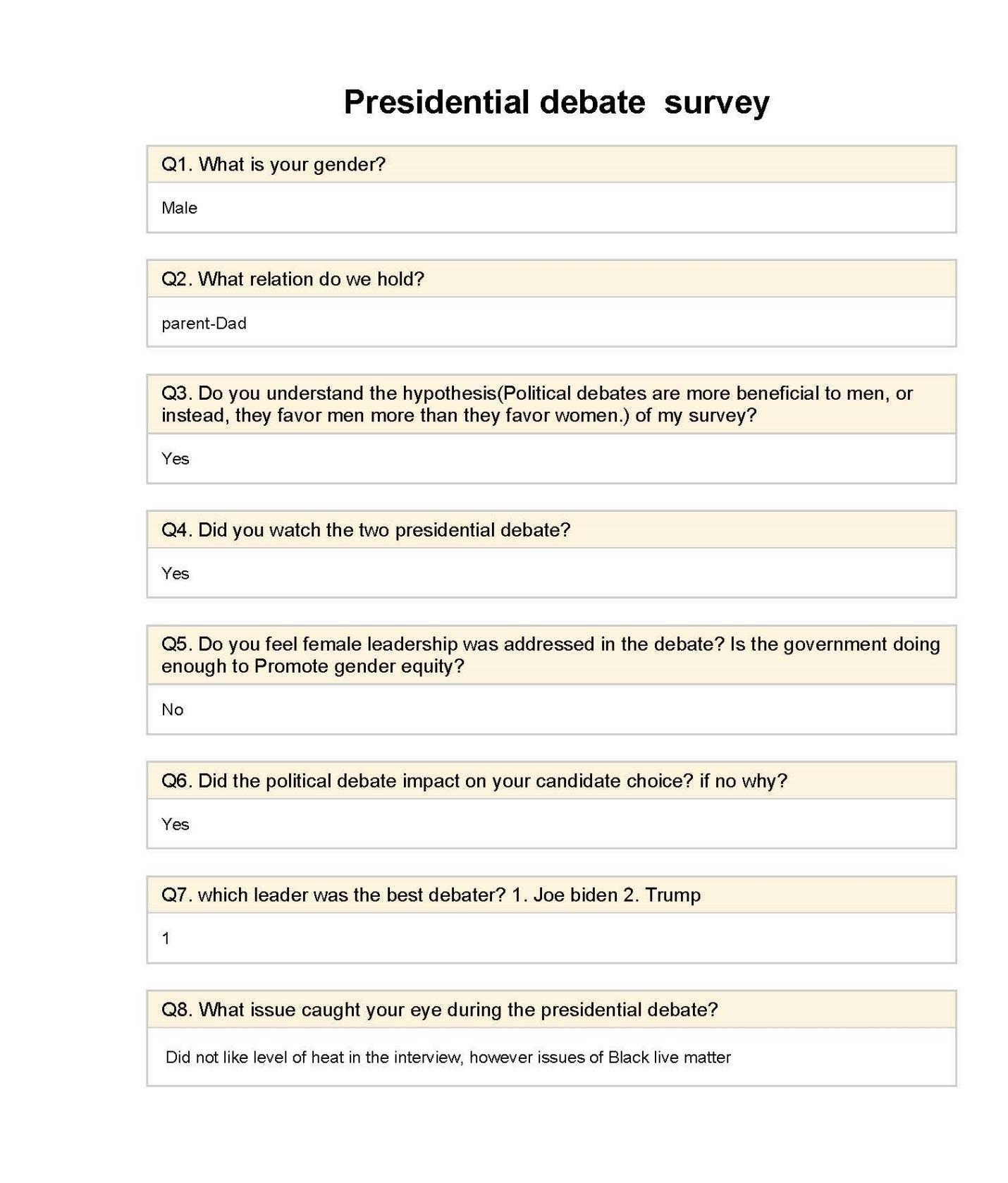
Appendices two
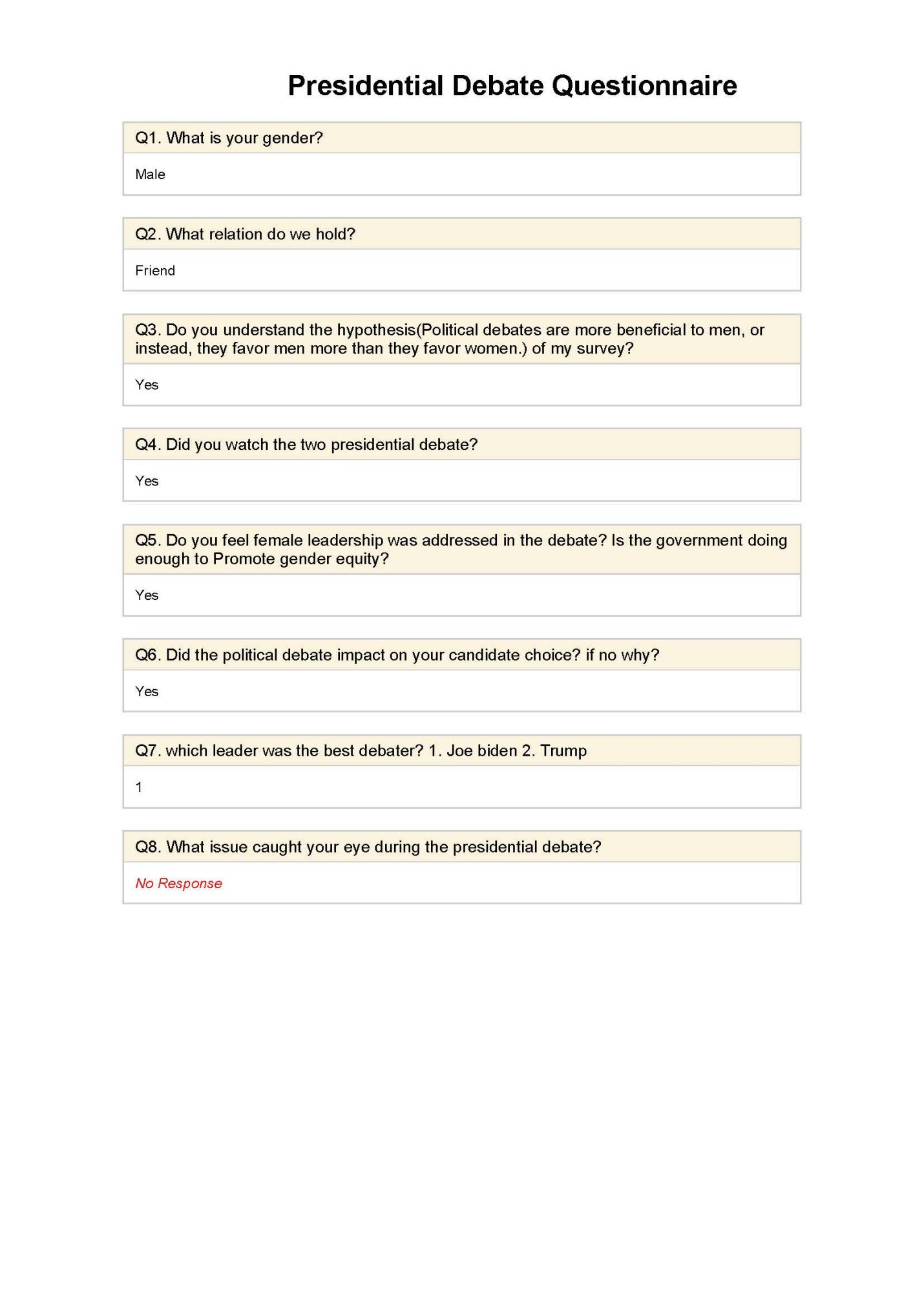
Appendices Three
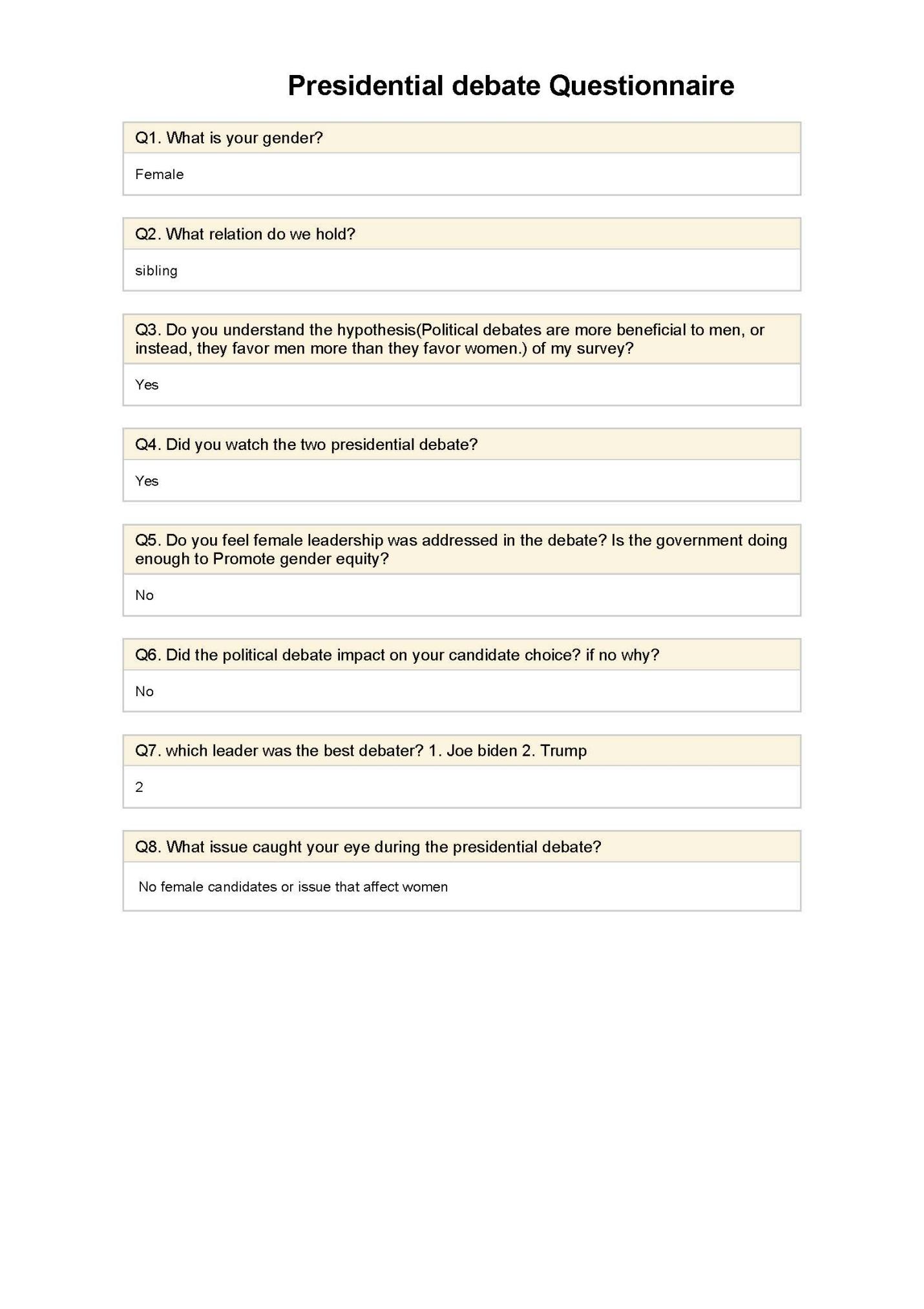
Appendices Four
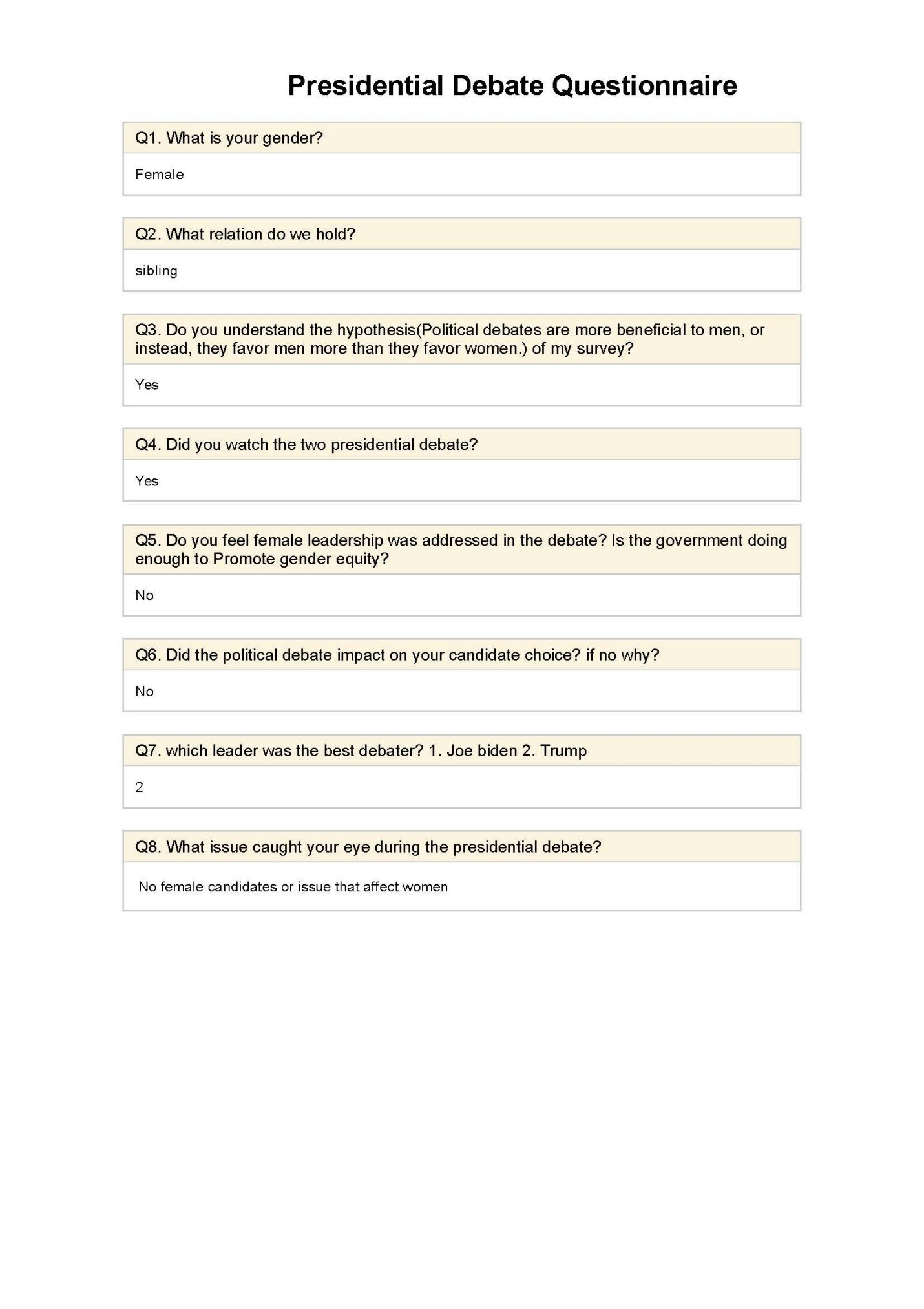
Appendices Five
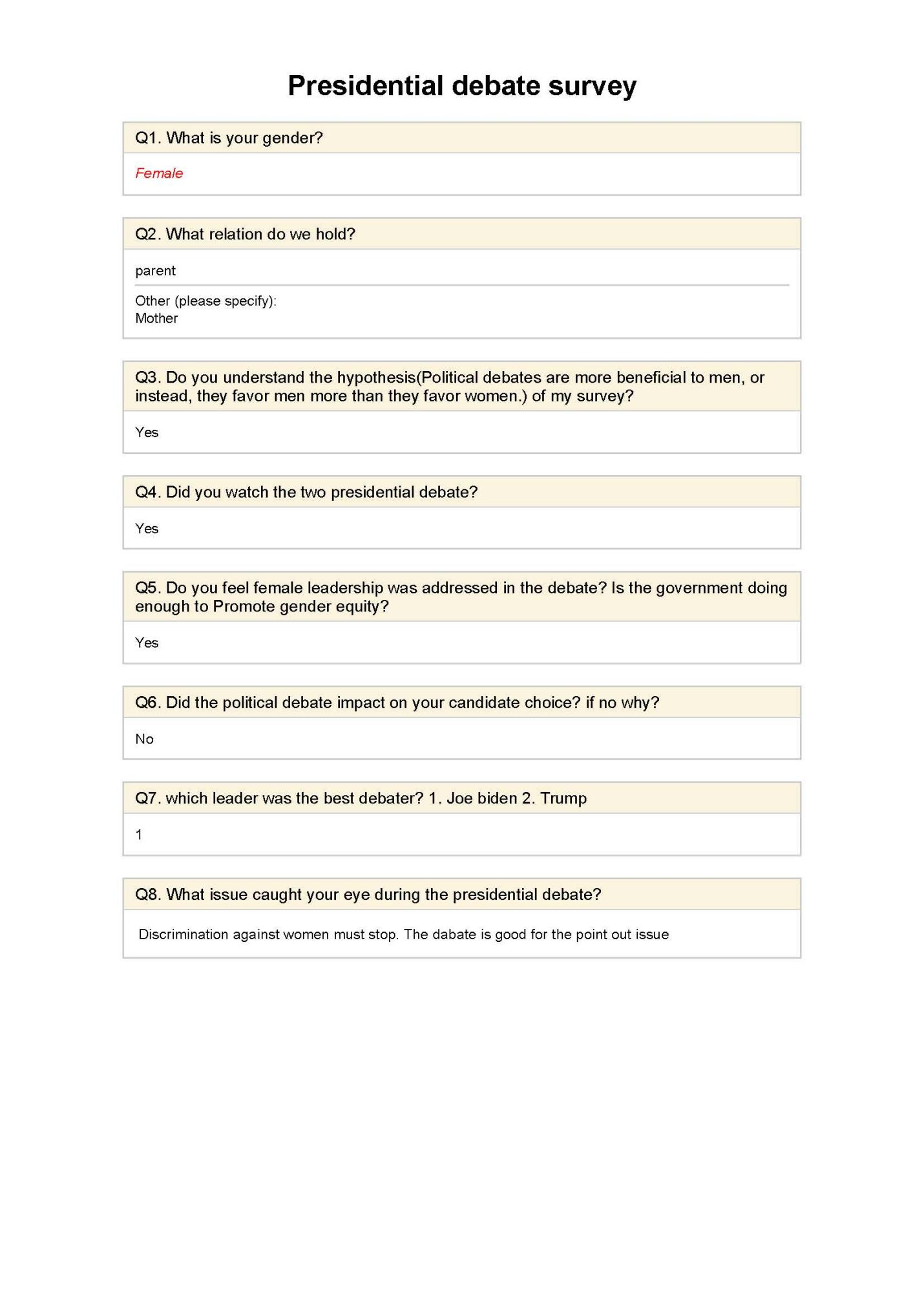
Appendices Six
